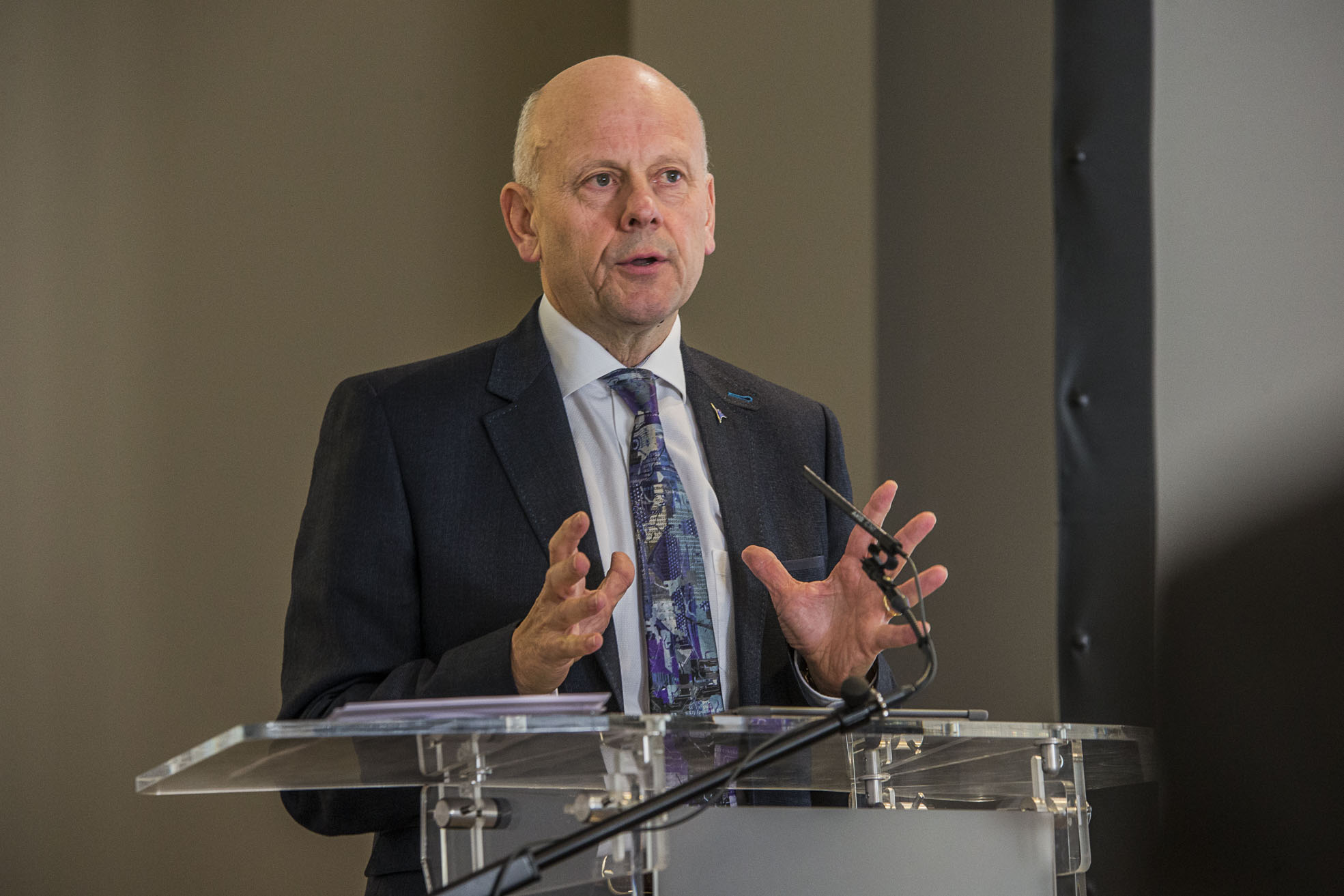Chronic shortage of carers in Wales will pose ‘as big an issue as lack of HGV drivers’

Gareth Wyn Williams, local democracy reporter
A chronic lack of social carers poses just as big a problem as the ongoing HGV driver shortage, it has been claimed, amid calls for national action including the “disgracefully low” wages.
A recent Care Inspectorate Wales report noted recruitment and retention of staff to be one of social care’s “biggest worries,” due to the pressures of the Covid-19 pandemic causing many to leave the profession.
But with Brexit having already compounded the pool of foreign workers, claims that dozens of local residents are stuck in their hospital beds and unable to leave due to a lack of home carers has seen members of Gwynedd Council’s cabinet reiterate the need for urgent help.
A recent study found that well over half of Welsh care workers are not paid the “Real Living Wage” of £9.30 outside of London – an issue said to be even worse outside of the public sector.
But with National Insurance contributions being increased, Wales (like Scotland and Northern Ireland) will receive a proportionate share of the proceeds.
Under a 1.25 percentage point rise in contributions, Cardiff Bay is set to receive an extra £700m by 2024-25 with ministers “committed to delivering the Real Living Wage for social care workers early in this Senedd term.”
But with reports over the summer of over 20 residents of Meirionnydd and Eifionnydd being unable to return home as a result, Penrhyndeudraeth councillor Gareth Thomas asked: “It’s a major concern, home is the place for them but what’s being done to help with the recruitment?”
In response, Cllr Nia Jeffreys said during Tuesday’s cabinet meeting: “The outrage over the lack of lorry drivers is understandable – they are key workers – but where is the national outrage about the shortage of carers?
“Carers are crucial to the lives of the most vulnerable in society and the shortage is a matter or national shame.
“I know of local people who are stuck in hospitals – Alltwen and Ysbyty Gwynedd – who although well enough can’t go home to their family because there are no carers available.
“This is costly to the NHS and heartbreaking for families, but far from an issue for Gwynedd alone.
“Having all taken part in the Thursday night clap for carers we can’t now turn our backs on them – we need national action to pay carers properly.”
Morwenna Edwards, Gwynedd’s head of Social Services, said that both internal and external care staff were “vital” but there had been a feeling that such jobs ‘went under the radar’.
“There’s work on both a national and local level so that the public view these roles as being just as important as any other in health,” she added.
“Yes the salaries offered are important but candidates also want to feel that the field is given proper respect, ministers tend to recognise the NHS rather than local authority and private sector care workers.
“There’s work going on now to try and get that message out, but there are no easy answers sadly.”
‘Perfect storm’
With a national advertising campaign currently ongoing, she added that the authority was also acting on a local level to try and recruit more to the care sector.
Cllr Dafydd Meurig, who holds the adult social care portfolio, acknowledged that care workers are among the lowest paid in the authority, which he described as “a disgrace considering what they do.”
“I’m sure there are people that point a finger at us, but there’s little we can do as an authority to pay in full,” he added.
“There’s no way we could pass that on to ratepayers, that’s down to the Welsh Government to fund the sector properly and ensure parity with health.
“They say that Boris Johnson has sorted out the field, but he hasn’t, what he’s done is sort out the inheritance of rich families rather than recruitment and retention.
“Welsh Government has to act and properly fund it once and for all.”
The Chief Executive, Dafydd Gibbard, added that regional lobbying had been taking place with ministers with concerns regarding the knock-on effect on the NHS.
Responding to Cllr Jeffreys comments Mario Kreft MBE, the chairman of Care Forum Wales (CFW) told the Local Democracy Reporting Service: “As the First Minister pointed out, the social care sector was fragile even before Covid-19 struck and there was already a worrying shortage of staff.
“The pandemic has created a perfect storm and made an incredibly difficult situation even worse.
“The current model of funding which has been in operation for a quarter of a century is clearly not fit for purpose and never has been.”

‘Can’t function’
Stating that the current system had resulted in a “postcode lottery” since managing social care budgets was handed to councils, CFW recently slammed Gwynedd for paying its staff £1,700 more a year than that the authority shells out for carers in privately-run care homes.
The authority, however, says that the setting of care fees is based on a regional methodology including land values, building costs, pay levels, number of hours and home costs.
“Coming up with a way to properly fund social care has been the challenge of our age,” Mr Kreft concluded.
“The quest for an effective and integrated health and social care system has been going on for 30 years.
“What’s clear is that the current system is broken and we need a new national approach to sort out social care funding, which is incredibly important for so many reasons, including the fact that it underpins the NHS.
“Care homes across Wales are at breaking point and unless this is resolved as a matter of urgency we are going to see homes closing which will pile even more pressure on the NHS.
“In the meantime, we are very concerned providers we are going to reach a point where vulnerable people are at risk because there are not enough staff to care for them.
“I think that’s the biggest risk currently for the sector. You can’t function without people to provide care and that potentially is a bigger danger than the virus currently.”
Recruitment
In response, a Welsh Government spokesperson said: “We are committed to creating a stronger, better-paid workforce in social care.
“There are long standing challenges in recruitment and retention in social care, which has been made worse by the pandemic and a related increase in demand and complexity of need over the past several months.
“We have recently undertaken a national recruitment campaign which has resulted in an increase in job applications and we will be repeating this activity.
“Ministers are committed to delivering the Real Living Wage for social care workers early in this Senedd term.”
They added that with ‘Care Week’ taking place between October 11-17, there will be a focus on recruitment into the social care sector and further advertising and media activity is being planned to drive this.
For more details visit www.socialcare.wales
Support our Nation today
For the price of a cup of coffee a month you can help us create an independent, not-for-profit, national news service for the people of Wales, by the people of Wales.







Time for families to return to caring for their own. It’s a certain amount of trouble, but do you want your folks going to bed at 6 PM, cos the staff are going home?